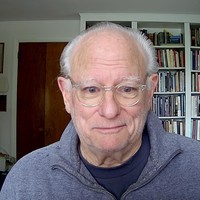
Dariusz Skórczewski
Dariusz Skórczewski, Ph.D. Hab., is Assistant Professor of Polish literature at the John Paul II Catholic University of Lublin where he is the head of cultural anthropology program in the Faculty of Humanities. In 2001—2004 and 2006—2007 as a Kosciuszko Foundation Fellow he was a visiting professor of Polish Studies at Rice University in Houston, Texas, and University of Illinois at Chicago. He was invited speaker to Georgetown University, Washington DC, University of Toronto, Canada, University of Indiana in Bloomington, Renmin University in Beijing, China, Beijing University of Foreign Studies, Akademie der Künste der Welt, Köln, Germany, and to numerous academic and cultural institutions in Poland.
Phone: +4881 4454425
Address: Department of Theory and Anthropology of Literature
John Paul II Catholic University of Lublin
Al. Raclawickie 14
PL-20-950 Lublin
Poland
Phone: +4881 4454425
Address: Department of Theory and Anthropology of Literature
John Paul II Catholic University of Lublin
Al. Raclawickie 14
PL-20-950 Lublin
Poland
less
Related Authors
Noel B. Salazar
KU Leuven
Edith Szanto
University of Alabama - Tuscaloosa
Alejandra B Osorio
Wellesley College
Armando Marques-Guedes
UNL - New University of Lisbon
Fjodor Uspenskij
Vinogradov Russian Language Institute
Florin Curta
University of Florida
John Sutton
Macquarie University
Andrii Portnov
European University Viadrina
Laurajane Smith
The Australian National University
Neil Silberman
University of Massachusetts Amherst
InterestsView All (18)










Uploads
Papers, book chapters by Dariusz Skórczewski
With its assertive title, Wojciech Kudyba’s 2018 novel "Emigranci wracają do domu" (Emigrants are returning home) suggests the possibility of considering it a voice in the current political debate on the return of Polish economic migrants to their homeland. However, the literary convention applied therein (spoken monologue), along with the protagonist’s metaphysical perspective, make such immediate, instru- mentalizing interpretations questionable. Placing the novel within the context of contemporary postsecular cosmopolitan society, I propose that the protagonist be seen as a peregrine to accentuate the ambivalence of his un/belonging: a subject who acknowledges the mortality and transiency of his existence, while on the other hand, immersed in earthly realities, discovers the need for a reintegrating narrative to restore for himself the feeling of intersubjective identification with his own nation. I prove that by incorporating a metaphysical perspective into migrant experience, Kudyba’s novel offers an innovative approach to re-emigra- tion discourse in contemporary Polish narrative writing, one rooted in Cyprian Norwid’s universalism.
The work grounds itself in two main hypotheses: that the “disease of the soul” characterized by melancholia is universally human, and that there should be some order and rigor given to the disparate attempts to describe this across disciplines. It is the task of hermeneutics – and often a psychoanalytic hermeneutic – to interpret this slippery but very important and current malaise in a way that can lead to a productive engagement. There must be a careful description that remains hermeneutical, sensitive to our finitude and historicity. […]
Taken as a whole, this book is a true work of the humanities, a work that deftly employs the methodologies of individual disciplines while recognizing the false sense of mastery that comes with a single methodology. The hermeneutic retrievals of important descriptions and embodiments of melancholia, as well as careful analyses of the impact of our distortions at that personal, cultural, and political level, make this an important contribution to a perennially urgent issue that eludes each humanistic discipline, but can be successfully engaged when they work together."
- From the review by Boyd Blundell, Loyola University
The author submits that the development of Polish and ECE postcolonial studies must rely on negotiating between the two major vectors that orient the field of application of postcolonial theory. The two vectors are defined as 'university pedagogy' and 'national pedagogy'. While the former implies scholarly disinterestedness and amounts to epistemological 'laboratory' in which to 'test' and falsify diverse approaches, takes, and methods, the latter, in accordance with S. Slemon (“'Post-colonialism' […] as the name for a condition of nativist longing in post-independence national groupings”), allows for the implementation of scholarly results in public discourses, thus actively participating in social transmission of knowledge and attaining the ultimate goal of postcolonial discourse, i.e., the reconstruction of identity and the regaining of subjectivity by the recently decolonized ECE societies. Instead of being viewed as antagonistic, these two vectors should be viewed as complementary, producing advantageous dynamics of postcolonial theory: 'university pedagogy' is a condition and a verifier of 'national pedagogy,' while 'national pedagogy' supplies ethical and social sanction to 'university pedagogy'.
Artykuł przedstawia obecną sytuację nowej dziedziny badań w Polsce, jaką są studia postkolonialne, odnosząc się zwłaszcza do powracającego sceptycyzmu niektórych badaczy, dotyczącego możliwości stosowania teorii postkolonialnej wobec krajów Europy Środkowo-Wschodniej, takich jak Polska. Zamiast obejmować te kraje tzw. teorią „postzależnościową”, autor opowiada się za rozszerzeniem i wzbogaceniem istniejącej teorii postkolonialnej poprzez wypracowanie zestawu kategorii analitycznych, które będą adekwatne do opisu polskiego doświadczenia historycznego jako zarówno skolonizowanego (przez imperium niemieckie, austriackie i rosyjskie/sowieckie), jak i kolonizatora (w czasach I i II Rzeczypospolitej). Włączenie Polski i innych krajów regionu do postkolonialnego paradygmatu może nie tylko przynieść korzyść w postaci ponownego przemyślenia globalnej teorii postkolonialnej, lecz również może dopomóc tym społeczeństwom w uporaniu się ze swoją obecną postkolonialną tożsamością.
Autor utrzymuje, że rozwój studiów postkolonialnych w Polsce i innych krajach środkowo- i wschodnioeuropejskich musi opierać się na negocjowaniu pomiędzy dwoma głównymi wektorami, jakie orientują pole zastosowania teorii postkolonialnej. Te dwa wektory zdefiniowane są w artykule jako „pedagogika uniwersytecka” i „pedagogika narodowa”. Pierwszy z nich wskazuje ma naukową bezinteresowność postkolonializmu i jest równoznaczny z epistemologicznym „laboratorium”, w którym „testuje” się i falsyfikuje różnorodne podejścia, ujęcia i metody. Natomiast drugi wektor, wynikający z rozumienia studiów postkolonialnych jako naukowej realizacji „tęsknoty natywistycznej w grupach narodowych, które formalnie uzyskały niezawisłość”, uwzględnia zastosowanie wyników naukowych w dyskursach publicznych, pozwalając w ten sposób postkolonializmowi na aktywne uczestnictwo w społecznym przekazie wiedzy, a tym samym realizując ostateczny cel pragmatyczny dyskursu postkolonialnego, jakim jest rekonstrukcja tożsamości i odzyskanie podmiotowości przez zdekolonizowane społeczeństwo. Zamiast antagonizmu artykuł postuluje, by w wektorach tych widzieć komplementarność stwarzającą szansę korzystnej dynamiki w obrębie teorii postkolonialnej w naszym regionie: „pedagogika uniwersytecka” stanowiłaby wówczas weryfikator „pedagogiki narodowej”, podczas gdy ta druga dostarczałaby etycznej i społecznej sankcji pierwszej.
With its assertive title, Wojciech Kudyba’s 2018 novel "Emigranci wracają do domu" (Emigrants are returning home) suggests the possibility of considering it a voice in the current political debate on the return of Polish economic migrants to their homeland. However, the literary convention applied therein (spoken monologue), along with the protagonist’s metaphysical perspective, make such immediate, instru- mentalizing interpretations questionable. Placing the novel within the context of contemporary postsecular cosmopolitan society, I propose that the protagonist be seen as a peregrine to accentuate the ambivalence of his un/belonging: a subject who acknowledges the mortality and transiency of his existence, while on the other hand, immersed in earthly realities, discovers the need for a reintegrating narrative to restore for himself the feeling of intersubjective identification with his own nation. I prove that by incorporating a metaphysical perspective into migrant experience, Kudyba’s novel offers an innovative approach to re-emigra- tion discourse in contemporary Polish narrative writing, one rooted in Cyprian Norwid’s universalism.
The work grounds itself in two main hypotheses: that the “disease of the soul” characterized by melancholia is universally human, and that there should be some order and rigor given to the disparate attempts to describe this across disciplines. It is the task of hermeneutics – and often a psychoanalytic hermeneutic – to interpret this slippery but very important and current malaise in a way that can lead to a productive engagement. There must be a careful description that remains hermeneutical, sensitive to our finitude and historicity. […]
Taken as a whole, this book is a true work of the humanities, a work that deftly employs the methodologies of individual disciplines while recognizing the false sense of mastery that comes with a single methodology. The hermeneutic retrievals of important descriptions and embodiments of melancholia, as well as careful analyses of the impact of our distortions at that personal, cultural, and political level, make this an important contribution to a perennially urgent issue that eludes each humanistic discipline, but can be successfully engaged when they work together."
- From the review by Boyd Blundell, Loyola University
The author submits that the development of Polish and ECE postcolonial studies must rely on negotiating between the two major vectors that orient the field of application of postcolonial theory. The two vectors are defined as 'university pedagogy' and 'national pedagogy'. While the former implies scholarly disinterestedness and amounts to epistemological 'laboratory' in which to 'test' and falsify diverse approaches, takes, and methods, the latter, in accordance with S. Slemon (“'Post-colonialism' […] as the name for a condition of nativist longing in post-independence national groupings”), allows for the implementation of scholarly results in public discourses, thus actively participating in social transmission of knowledge and attaining the ultimate goal of postcolonial discourse, i.e., the reconstruction of identity and the regaining of subjectivity by the recently decolonized ECE societies. Instead of being viewed as antagonistic, these two vectors should be viewed as complementary, producing advantageous dynamics of postcolonial theory: 'university pedagogy' is a condition and a verifier of 'national pedagogy,' while 'national pedagogy' supplies ethical and social sanction to 'university pedagogy'.
Artykuł przedstawia obecną sytuację nowej dziedziny badań w Polsce, jaką są studia postkolonialne, odnosząc się zwłaszcza do powracającego sceptycyzmu niektórych badaczy, dotyczącego możliwości stosowania teorii postkolonialnej wobec krajów Europy Środkowo-Wschodniej, takich jak Polska. Zamiast obejmować te kraje tzw. teorią „postzależnościową”, autor opowiada się za rozszerzeniem i wzbogaceniem istniejącej teorii postkolonialnej poprzez wypracowanie zestawu kategorii analitycznych, które będą adekwatne do opisu polskiego doświadczenia historycznego jako zarówno skolonizowanego (przez imperium niemieckie, austriackie i rosyjskie/sowieckie), jak i kolonizatora (w czasach I i II Rzeczypospolitej). Włączenie Polski i innych krajów regionu do postkolonialnego paradygmatu może nie tylko przynieść korzyść w postaci ponownego przemyślenia globalnej teorii postkolonialnej, lecz również może dopomóc tym społeczeństwom w uporaniu się ze swoją obecną postkolonialną tożsamością.
Autor utrzymuje, że rozwój studiów postkolonialnych w Polsce i innych krajach środkowo- i wschodnioeuropejskich musi opierać się na negocjowaniu pomiędzy dwoma głównymi wektorami, jakie orientują pole zastosowania teorii postkolonialnej. Te dwa wektory zdefiniowane są w artykule jako „pedagogika uniwersytecka” i „pedagogika narodowa”. Pierwszy z nich wskazuje ma naukową bezinteresowność postkolonializmu i jest równoznaczny z epistemologicznym „laboratorium”, w którym „testuje” się i falsyfikuje różnorodne podejścia, ujęcia i metody. Natomiast drugi wektor, wynikający z rozumienia studiów postkolonialnych jako naukowej realizacji „tęsknoty natywistycznej w grupach narodowych, które formalnie uzyskały niezawisłość”, uwzględnia zastosowanie wyników naukowych w dyskursach publicznych, pozwalając w ten sposób postkolonializmowi na aktywne uczestnictwo w społecznym przekazie wiedzy, a tym samym realizując ostateczny cel pragmatyczny dyskursu postkolonialnego, jakim jest rekonstrukcja tożsamości i odzyskanie podmiotowości przez zdekolonizowane społeczeństwo. Zamiast antagonizmu artykuł postuluje, by w wektorach tych widzieć komplementarność stwarzającą szansę korzystnej dynamiki w obrębie teorii postkolonialnej w naszym regionie: „pedagogika uniwersytecka” stanowiłaby wówczas weryfikator „pedagogiki narodowej”, podczas gdy ta druga dostarczałaby etycznej i społecznej sankcji pierwszej.
The book Phantasms of the Colonized Poles. Studies in Cultural Identity comprises texts originally published in Polish, with the exception of one paper that was originally published in Russian. These texts span the years from 2014 to 2020 and have been subsequently revised and expanded. The book is divided into three main parts. Part 1 Direction: Postcolonialism contains essays which, dwelling on the concepts laid out in my previous books Teoria—literatura—dyskurs. Pejzaż postkolonialny (Lublin 2013) and Polish Literature and National Identity: A Postcolonial Perspective (University of Rochester Press–Boydell & Brewer, 2020), further theorize Polish and East-Central European postcolonialism. In part 2 Traversing Two Centuries: 1819-2018 I embrace and propose postcolonial concepts that can be employed to analyze the works of authors originating from Poland and East-Central Europe, spanning from the Romantic era to the 21st century. Part 3, entitled On the Trails of Popular Culture, provides a postcolonial perspective on selected phenomena in Polish film and youth literature.
For a more detailed summary, see the attached PDF.
and remains a blank spot in global studies of postcolonialism. Dariusz Skórczewski is among the first scholars to apply postcolonial thought to Polish realities, at the same time modifying the theoretical framework developed by other scholars of postcolonialism. Polish Literature and National Identity reveals how the experiences of foreign domination and the history of empire have shaped contemporary Polish culture and society.
The book, newly translated from the Polish, introduces Anglophone audiences to the potential implications of postcolonial studies on an understanding of Poland’s unique historical position within Europe. Skórczewski explores transformations of national identity as reflected in Polish literature and critical discourse from Romanticism to the twenty- first century. The narrative thus tackles questions surrounding Poland’s postcolonial status in contemporary East-Central Europe, a region where globalization and cosmopolitanism clash with resurgent national sentiments and where predictions about a speedy transition to a postnational era now seem premature.